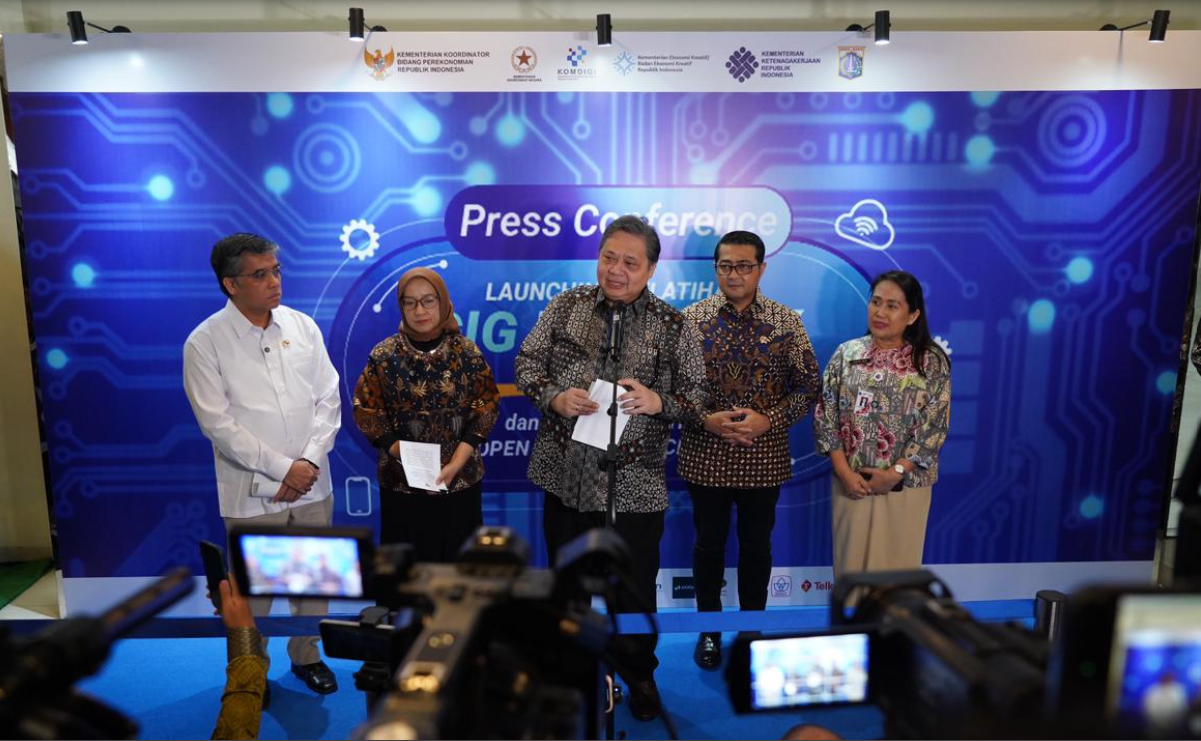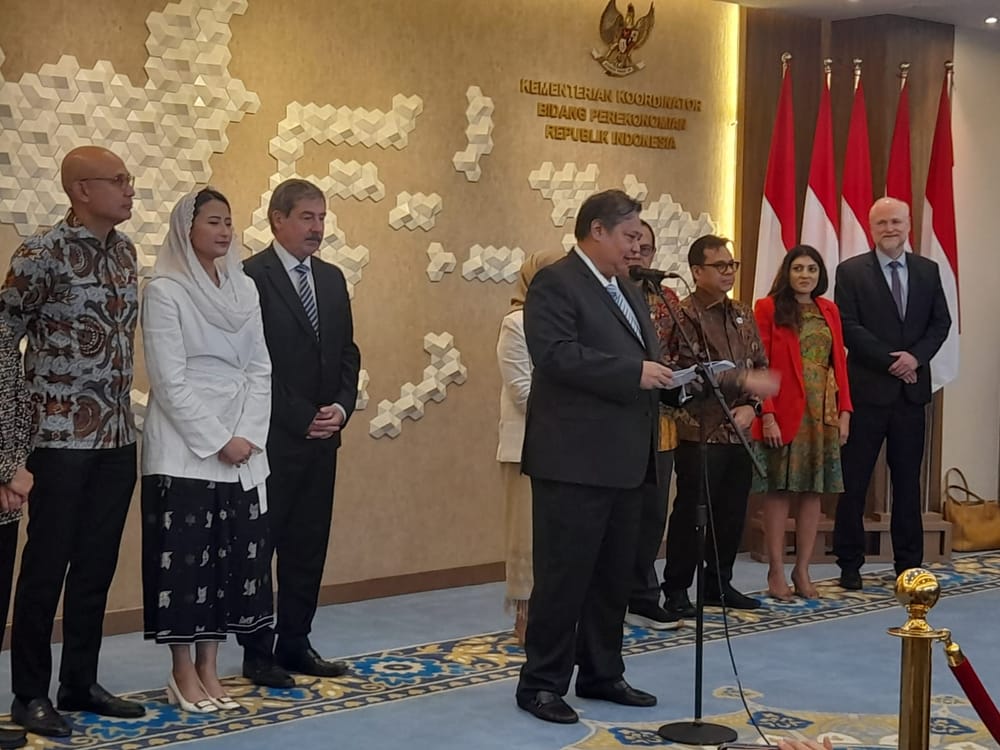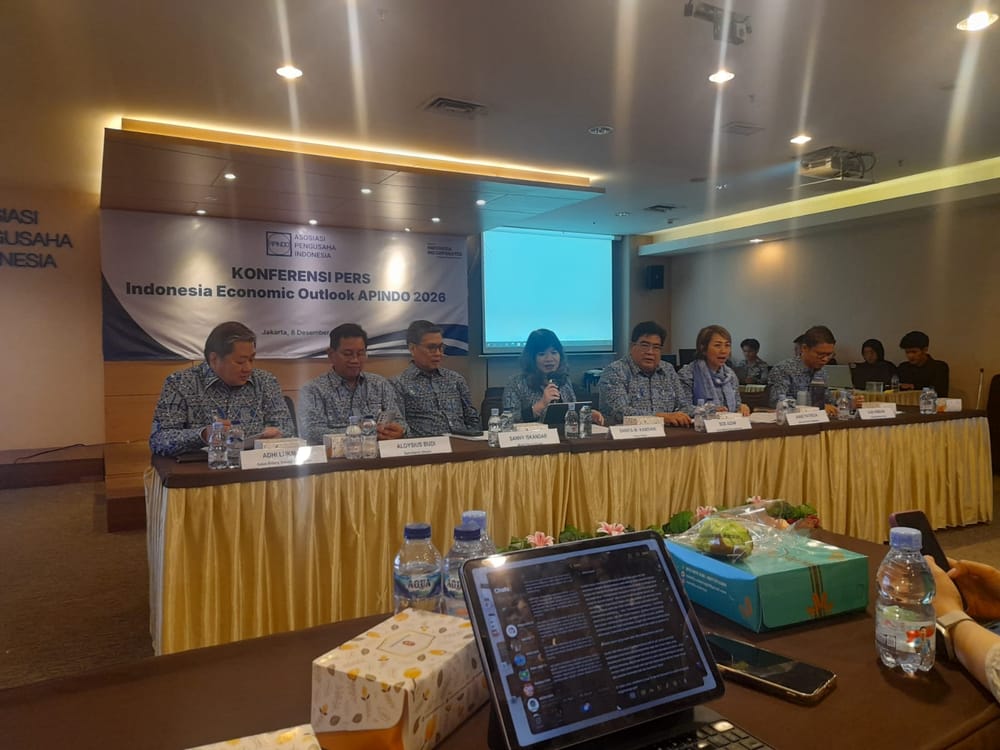The government's decision to cut the allocation of transfer funds to regions (TKD) in the draft budget for next year has reaped various reactions from various regional heads of government. They said that this has the potential to burden regional finances and hinder regional development.
Meanwhile, various experts suggest that regional heads can be more creative in exploring new potential sources of local revenue (PAD) to cover the deficit due to reduced transfer funds from the central to the regions.
The policy contained in the 2026 Draft State Budget (RAPBN) states: the government has set the allocation of transfer funds to regions (TKD) at Rp 650 trillion. This figure is down significantly by Rp 214.1 trillion or 24.8% compared to the outlook of the 2025 State Budget, which reached Rp 864.1 trillion.
"This will certainly weaken regional government finances," said Sarman Simanjorang, Deputy Chairperson for Regional Autonomy Development of the Indonesian Chamber of Commerce and Industry (Kadin), to SUAR in Jakarta, Wednesday (20/8).
Sarman explained that this decrease in funds will also hamper development programs in various fields, especially for regions that mostly still depend on transfer funds from the central government.
"This budget cut can have an impact on the quality of public services and the regional economic turnover, because regional government spending functions as a stimulus for the private sector," he said.
A similar sentiment was conveyed by the Executive Director of the Regional Autonomy Implementation Monitoring Committee (KPPOD), Herman Suparman. He assessed that this has the potential to hit regions that have so far been very dependent on injections of funds from the central government.
"Around 60%–70% of our regions, cities, and also provinces still rely on funds from the central government which are called transfers to the regions, or what used to be called equalization funds," he told SUAR via telephone.
He added that this flow of funds makes the regional economy very dependent on regional government spending, which includes operational and capital expenditures.
Herman compared this situation with the budget efficiency of Rp 50.59 trillion carried out by the central government in 2025, which has made it difficult for the regions.
"We can see that with a decrease or with an efficiency of Rp 50.59 trillion in 2025, the regions are already struggling like that, especially next year when there is a decrease of 24.8%," he said.
Strategy and innovation
So, what is the solution? According to the Chairperson of the Association of Regency Governments Throughout Indonesia (Apkasi), Bursah Zarnubi, a mature transition strategy is needed so that regions can still maintain the quality of public services and ensure equitable development.
He cited the example of the efficiency policies implemented at the beginning of 2025, which have already troubled regional heads in carrying out their duties. So, if it is cut again, this will be very burdensome.
"We will bring the results of discussions with our fellow regents today to be put into a letter and formulation which will then be submitted to the President. The point is, we in the regions strongly object to any cuts in the TKD budget in the State Budget next year," said Bursah, who is the Regent of Lahat, quoted from an official statement (9/8/2025).
Responding to the central government's policy, Apkasi stated that it is open to dialogue with a comprehensive study involving various parties so that the impact of adjusting transfers to the regions can be assessed objectively.
"We are ready to be invited to dialogue, and if necessary a comprehensive study is carried out regarding the impact of TKD cuts on regional capabilities. An adequate transition mechanism is needed if this policy must be implemented. Most importantly, Apkasi is ready to maintain intensive communication and coordination between the central and regional governments," he said.
Bursah emphasized that adequate fiscal support is crucial, especially to maintain the smooth running of basic infrastructure projects - such as roads, schools, health centers, and irrigation as the foundation for economic activity, health, and education.
Media Wahyudi Askar, Director of Fiscal Policy at the Center of Economic and Law Studies (Celios), even considered the 2026 TKD cut policy as a backward step that could potentially violate the principles of fiscal decentralization and regional autonomy after 80 years of Indonesia's independence.
"In my opinion, constitutionally this is clearly very contrary to the principle of decentralization in article 18 of the 1945 Constitution," Media told SUAR.
To address the short-term impact, Media suggested that regents and mayors urge the central government to re-discuss the 2026 State Budget (RAPBN).
He hopes that local governments can honestly convey the impact of these cuts and urge that TKD be reconsidered.
Improve fiscal independence
However, Sarman Simanjorang advised regional heads to be more creative and work hard to explore the potential for new PAD to cover the deficit due to reduced transfer funds from the center to the regions.
"The regents must be more active in attracting investors, mobilizing UMKM, utilizing regional superior products," he said.
In an effort to attract investors, Sarman emphasized that local governments cannot work alone. It is important to collaborate with various ministries, such as the Ministry of Investment and Downstream, the Ministry of Industry, as well as other relevant ministries, to direct investors according to the potential resources in the region.
He sees that regions included in special economic zones (SEZs) have great potential. So, he encouraged regional heads to actively open new industrial areas and promote investment opportunities. "Regions that are included in special economic zones (SEZs) have great potential to increase PAD with the entry of investors," said Sarman.
"Regions that are included in special economic zones (KEK) have great potential to increase PAD with the entry of investors," said Sarman.
He also encouraged regional heads to proactively open new industrial estates in accordance with local potential and actively promote investment opportunities.
To increase local revenue (PAD), Herman Suparman proposed several innovations. He encouraged the improvement of the tax collection system by using a digital platform and tidying up the taxpayer database. "Only in that way, we think it can increase regional revenue rather than regional levies," he explained.
Furthermore, Herman added that local governments must provide ease and certainty of investment, especially in the service sector through improved licensing.
According to him, encouraging investment in the service sector such as tourism can increase revenue from derivative sectors, such as hotels, restaurants, and other entertainment, so as to optimize local tax revenue.
"In addition, if investment increases, it will also have an impact on the Fees for Acquisition of Rights on Land and Buildings (BPHTB). Buying and selling land and buildings has BPHTB potential," explained Herman, who is also a researcher on regional economic governance.
He cited several regions that have successfully optimized their large economic and tourism potential, such as Jakarta, Surabaya City, Tangerang City, Bandung Regency. However, he underlined that these cities cannot be compared with other regions because the potential of each region is different.
Herman also cited fiscal incentive policies implemented by regional governments such as Jakarta and West Java.
"Fiscal incentives to taxpayers related to Motor Vehicle Tax (PKB), for example, they remove the fine (late payment of PKB), it also encourages an increase in tax payments," he explained.
According to Herman, things like this can be an example for other regions to encourage an increase in PAD. Another alternative, namely, utilizing non-APBD financing schemes, such as partnerships with the private sector(public-private partnership) or optimization of regional assets.






